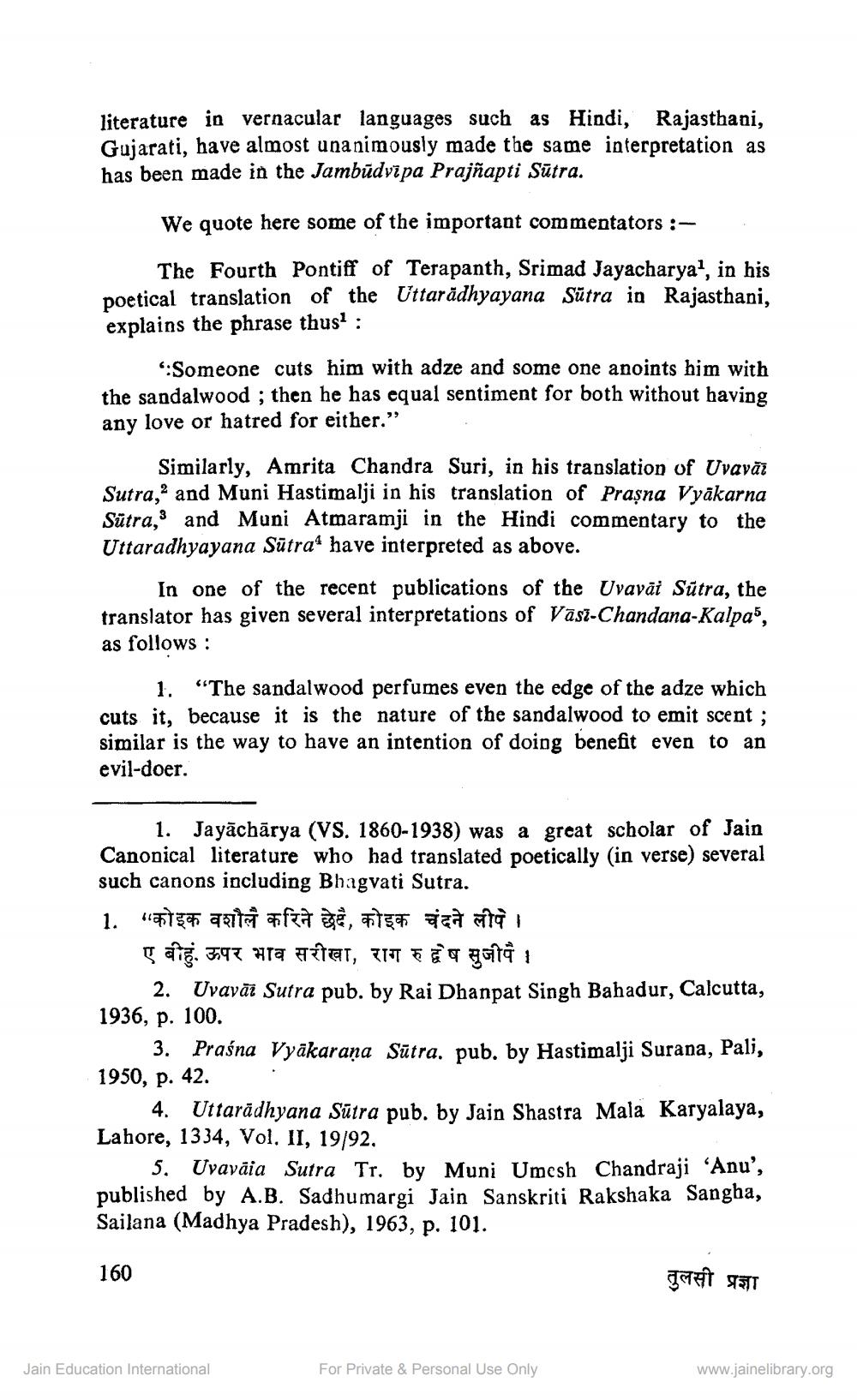________________
literature in vernacular languages such as Hindi, Rajasthani, Gujarati, have almost unanimously made the same interpretation as has been made in the Jambūdvipa Prajñapti Sūtra.
We quote here some of the important commentators :
The Fourth Pontiff of Terapanth, Srimad Jayacharya', in his poetical translation of the Uttarādhyayana Sūtra in Rajasthani, explains the phrase thus! :
Someone cuts him with adze and some one anoints him with the sandalwood ; then he has equal sentiment for both without having any love or hatred for either."
Similarly, Amrita Chandra Suri, in his translation of Uvavāi Sutra.? and Muni Hastimalji in his translation of Praşna Vyäkarna Sūtra,3 and Muni Atmaramji in the Hindi commentary to the Uttaradhyayana Sūtra' have interpreted as above.
In one of the recent publications of the Uvavāi Sūtra, the translator has given several interpretations of Vāsi-Chandana-Kalpas, as follows:
1. "The sandalwood perfumes even the edge of the adze which cuts it, because it is the nature of the sandalwood to emit scent ; similar is the way to have an intention of doing benefit even to an evil-doer.
1. Jayāchārya (VS. 1860-1938) was a great scholar of Jain Canonical literature who had translated poetically in verse) several such canons including Bhagvati Sutra. 1. "7115046 asti fra sce, #757 jaa oma l
ए बीहुं. ऊपर भाव सरीखा, राग रु द्वेष सुजीपै ।
2. Uvavāí Sutra pub. by Rai Dhanpat Singh Bahadur, Calcutta, 1936, p. 100.
3. Praśna Vyākarana Sūtra. pub. by Hastimalji Surana, Pali, 1950, p. 42.
4. Uttarādhyana Sūtra pub. by Jain Shastra Mala Karyalaya, Lahore, 1334, Vol. II, 19/92.
5. Uvavāia Sutra Tr. by Muni Umesh Chandraji 'Anu', published by A.B. Sadhumargi Jain Sanskriti Rakshaka Sangha, Sailana (Madhya Pradesh), 1963, p. 101.
160
तुलसी प्रज्ञा
Jain Education International
For Private & Personal Use Only
www.jainelibrary.org




